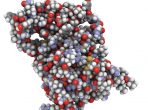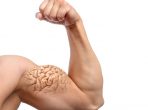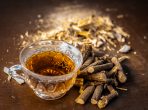Subscribe to the our newsletter to receive latest news straight to your inbox.
Common Types of Childhood Anxiety
How Aging Athletes Can Stay in Shape?
Travel Medical Insurance: All the basics you need to know
How Athletes Should Deal With Anxiety
Georgia Cabins With A Water View Are Like A Home Away From Home
Benefits of HGH for Athletes
These Habits May Be Making Your Period Worse
How to Make an Effective Parenting Plan?
4 Best Tips To Follow For Quick Lift Repair
How Can a Professional Assignment Help Contribute to Your Success as a Student?
Benefits of Coffee for Professional Athletes
Six Dental Consideration Tips to Prevent Your Child from Getting Braces
Six best life hacks for the motorists
How Athletes Can Recover From Knee Replacement Surgery?
Things You Should Know About Muscle Brain
How to Prevent Regression on Autistic Children?
Beneficial Herbs for Athletes
The Economic System of the United States of America
How Digital Marketing Company Can Help Your Business
Benefits and Risks of Sunlight
How To Choose The Best Synthetic Grass For Your Garden
How Companies Can Boost the Hiring Process?
3 Tips to Remove Profile Pictures from Zoom
Data Management Challenges Facing Small Business Owners
TOP 7 Ways to Become BETTER DRIVER!
Why Parents Need to Maintain Traditional Values at Home?
TOP 5 MINI CARS For Solo Travelers
5 Best Way To Find House Cleaning Services
How to Make Children Perform Better at School?
What Should Be Included In The Home Inspection Checklist
Reasons Children Become Fussy Eaters
Tips on How To Buy The Right Refrigerator For Yourself
Health Benefits of Memory Foam Mattresses
The Impact The Art Deco Era Had On Different Industries
Long and Spacious: 5 Most Luxurious Estate Cars
Places in Calgary You CANNOT SEE Without a Car
SEVEN STRATEGIES TO IMPROVE YOUR WRITING SKILLS
Seven Ways to Become Productive Parents
Luxury Driving: 6 Chic Premium Cars to Feel Like a Celebrity
How Sex Can Improve Your Period & How to Do It Better
Things worth Considering for How to get into Digital Marketing
Importance of Protein and Vitamin D for Athletes
3 Ways to Improve Your Body Positivity
How Parents Should Deal With Fussy Eaters At Home?
How Alcohol Causes You To Gain Weight?
What should always be in a car on a long journey?
What to Do When Children Misbehave?
How to Prepare Children for the First Day of Preschool?
Men, Can These 7 Intimacy Tips Save Your Sex Life?
Festival of Lights: Buy These Exciting Smartphones in 2019
Easy Driving: 10 Options that Should be Included in Each Modern Car
How To Handle The Last Minute Moving – Helpful Tips
Believe It or Not: 10 Myths on Studying in the USA
What to See in Portugal? 5 Amazing Sights of Algarve
The World of Cars: 10 Amazing Modern Innovations
Health Risks of X-Ray Scans
Ultimate San Francisco CITY GUIDE for Youngsters: Places to See by Car
Benefits of Yoga for Athletes
First-Time Home Owner: Affordable Interior Design Ideas
Why Teenagers Want to Be Loved?
How Parents Can Gain Respect From Children?
How to Laser Target Your Ideal Audience Using Market Research?
Why Teenagers Become Rebellious So Easily?
How to Control The Way Children Use the Internet?
Ways to Survive a Hot Summer Day
How to Price Your Car? | Helpful Guidelines
HOW DO I PREPARE FOR MY FIRST YEAR OF LAW SCHOOL?
Negative Impacts of Air Pollution
Reasons You Are Susceptible to Mental Problems

How Alcohol Affects Athletes?
Athletes can be affected by alcohol in different ways, such as poor recovery time, lack of endurance, poor focus and dehydration. Dehydration is a substance that’s abused by many athletes. It may cause considerable effects on how athletes perform in training sessions and matches. Just like caffeine, alcohol is also a diuretic, which increases the…

Athletes can be affected by alcohol in different ways, such as poor recovery time, lack of endurance, poor focus and dehydration. Dehydration is a substance that’s abused by many athletes. It may cause considerable effects on how athletes perform in training sessions and matches. Just like caffeine, alcohol is also a diuretic, which increases the production of urine. So, drinking too much alcohol may cause dehydration. Water is so essential that losing only 2 percent of water in our body could cause us to lose performance. Because athletes often sweat profusely, dehydration is a real issue for them. Dehydration makes our blood slightly thicker and it will reduce blood flow. So, our body has reduced ability to circulate nutrients and oxygen into our muscles and other soft tissue.
Alcohol is just like a bully who seeks all the attention. When enough alcohol is ingested, our body will give it a priority, so alcohol can be metabolized or removed from our body. Our body works hard to break down alcohol and the release of glucose into our bloodstream will be reduced. Glucose is the fuel for our muscles and if our muscles can’t get enough of it, our physical activity will suffer. Not only lack of energy, we will also have reduced reaction time, dexterity, coordination and concentration. When our body absorbs alcohol, water balance will be disrupted. If water level in our cells is low, they can’t make enough ATP or adenosine triphosphate, which is burnt as fuel when our muscles are contracting.
Another important function in our body is the constant breakdown of lactic acid. When our muscles move quickly for a longer period of time, more lactic acid is produced. When lactic acid accumulates inside our body, we will lack enough power and strength. You will also become tired more easily. If you consume high quantity of alcohol continuously, you liver will work too hard to remove it. Athletes need to have more muscle mass, but alcohol may hamper this. Alcohol may also affect sleep patterns and you should know that only during deep sleep, HGH or human growth hormone is released. It has been shown that high consumption of alcohol could reduce HGH levels in your body by up to 70 percent.
High level of alcohol consumption may also reduce muscle recovery level and lean muscle mass, due to the lower level of testosterone. Both testosterone and HGH are essential to ensure muscle growth. Constant consumption of alcohol will affect your sleep pattern, but good sleep at night is essential for your muscles to grow. Binge drinking of alcoholic beverages will affect your muscle fibers. They won’t be able to respond to exercises. If you have sports injuries, higher presence of alcohol in your body will increase the down time needed for your body to fully heal. With the use of alcohol, the overall recovery time will be longer. Also alcohol also causes your blood vessels to open up, making swelling and bleeding more likely to happen after a sharp impact.
Recommended Articles
-
Places in Calgary You CANNOT SEE Without a Car
5 years ago7102 views -
What to See in Portugal? 5 Amazing Sights of Algarve
5 years ago7083 views -
Benefits of Yoga for Athletes
6 years ago6233 views -
How To Choose The Best Synthetic Grass For Your Garden
5 years ago9096 views -
How Companies Can Boost the Hiring Process?
2 years ago2292 views -
Six Of The Must-See Beaches Near London
11 months ago1829 views
Leave a Reply
You must be logged in to post a comment.

















































































3instrument
2granular
writing the dissertation https://professionaldissertationwriting.org/
dissertation topics https://professionaldissertationwriting.com/
uk dissertation help https://helpwithdissertationwritinglondon.com/
writing the dissertation https://dissertationwritingcenter.com/
writing service https://dissertationhelpexpert.com/
dissertation writing uk https://accountingdissertationhelp.com/
doctoral dissertation help history https://examplesofdissertation.com/
dissertation writing services in usa https://writing-a-dissertation.net/
dissertation presentation https://bestdissertationwritingservice.net/
dissertation defense https://businessdissertationhelp.com/
dissertation writing guide https://customdissertationwritinghelp.com/
writing a proposal for your dissertation https://writingadissertationproposal.com/
dissertation help methodology https://dissertationhelpspecialist.com/
sample dissertation https://dissertationhelperhub.com/
write your dissertation https://customthesiswritingservices.com/
hollywood casino pa online https://download-casino-slots.com/
online casino virginia https://firstonlinecasino.org/
newest pa online casino https://onlinecasinofortunes.com/
no deposit online casino https://newlasvegascasinos.com/
resorts online casino nj https://trust-online-casino.com/
casino online canada https://9lineslotscasino.com/
casino online com https://internet-casinos-online.net/
nj online casino promo codes https://cybertimeonlinecasino.com/
online sweepstakes casino real money https://1freeslotscasino.com/
thunder valley online casino https://vrgamescasino.com/
free online casino https://casino-online-roulette.com/
best no deposit bonus online casino https://onlineplayerscasino.com/
casino borgata online https://ownonlinecasino.com/
10 dollar minimum deposit usa online casino https://casino8online.com/
best free vpn? https://freevpnconnection.com/
best countries for vpn https://shiva-vpn.com/
best vpn router 2019 https://freehostingvpn.com/
cyberghost vpn free download https://ippowervpn.net/
download free vpn https://imfreevpn.net/
best vpn windows 2017 https://superfreevpn.net/
best vpn firestick https://rsvpnorthvalley.com/
best website for senior gay dating https://gay-singles-dating.com/
on line gay dating https://gayedating.com/
singles dating site https://onlinedatingbabes.com/
find single women https://adult-singles-online-dating.com/
free dating sites no payment https://adult-classifieds-online-dating.com/
europe online dating https://online-internet-dating.net/
matchmaking services https://speedatingwebsites.com/
matchmeetups dating site https://datingpersonalsonline.com/
meet singles online dating https://wowdatingsites.com/
asian dating sites https://freeadultdatingpasses.com/
online dating service https://virtual-online-dating-service.com/
personal dating https://onlinedatingservicesecrets.com/
chumba online casino https://onlinecasinos4me.com/
casino borgata online https://online2casino.com/
beat online casino https://casinosonlinex.com/
chatavenue gay chat https://newgaychat.com/
random gay video chat https://gaychatcams.net/
free gay phone chat no trial https://gaychatspots.com/
chat gay chat https://gay-live-chat.net/
gay massachusetts chat https://chatcongays.com/
gay live chat https://gayphillychat.com/
gay mature chat https://gaychatnorules.com/
bbrt gay chat site https://free-gay-sex-chat.com/
frre gay wedcam chat https://gayinteracialchat.com/
gay guy chat rooms no registration https://gaymanchatrooms.com/
finished custom writing paper https://term-paper-help.org/
paper helper https://sociologypapershelp.com/
will someone write my paper for me https://paperwritinghq.com/
do my paper https://doyourpapersonline.com/
where to buy resume paper https://top100custompapernapkins.com/
can you write my paper for me https://researchpaperswriting.org/
websites that write papers for you https://cheapcustompaper.org/
customized paper https://writingpaperservice.net/
paper writing service college https://buyessaypaperz.com/
write my paper for money https://mypaperwritinghelp.com/
online paper writer https://essaybuypaper.com/
best paper writing service reviews https://papercranewritingservices.com/
help with writing papers https://premiumpapershelp.com/
help with filing divorce papers https://ypaywallpapers.com/
pay someone to write my paper https://studentpaperhelp.com/
1onlooker
cpa coursework https://brainycoursework.com/
coursework info https://courseworkninja.com/
coursework writing https://writingacoursework.com/
coursework uk https://courseworkdownloads.com/
coursework website https://courseworkinfotest.com/
buy coursework https://buycoursework.org/
buy coursework https://courseworkdomau.com/
japanese dating site https://freewebdating.net/
international dating site usa https://jewish-dating-online.net/
dating services contact germany https://jewish-dating-online.net/
date website free https://free-dating-sites-free-personals.com/
free single site https://sexanddatingonline.com/
best dating site https://onlinedatingsurvey.com/
dating services https://onlinedatinghunks.com/
dating usa https://datingwebsiteshopper.com/
date free internet https://freewebdating.net/